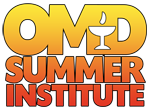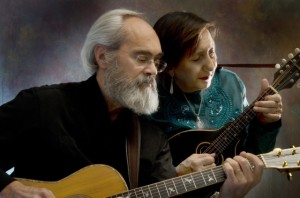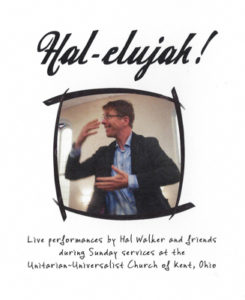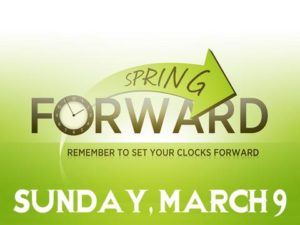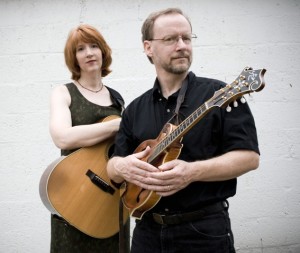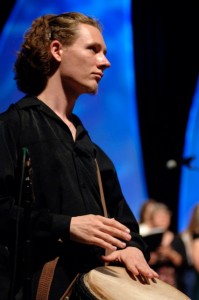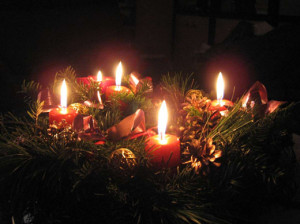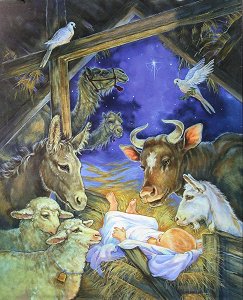shared during worship on May 20 and May 27, 2012
by Christie Anderson
May 20, 2012, “How Spirit Moves Us”
How does spirit move among us? The late UU minister Forrest Church once commented, “In our circle of faith, when two or more [are] gather[ed], a loving argument is the sure sign that the spirit is moving among us.” With this honest appraisal, I approached the idea of highlighting a congregational theological and worship profile with both excitement and trepidation. I think that all of us suspect that there is a diversity of theologies characterizing the people in this room and that we have differences in what we desire from worship and religious education. Yet, like our fellow UU congregations, we don’t talk about this elephant in the room.
In the early 2000s, the UUA decided that it was important to explore the many attitudes and beliefs of UU members, and undertook a three year study resulting in a report by the Commission on Appraisal entitled, “Engaging Our Theological Diversity.” In 2004, an extensive survey was conducted at this church as part of our planning to select a new minister. I will be referring to both reports to a limited extent when comparing our survey responses, as the profile and trends portrayed by this congregation are a similar reflection to those emerging within the wider UU denomination.
Our recent survey was compiled, distributed and analyzed with the enthusiasm and invaluable help of Lois Weir. It was undertaken with the support of Rev. Melissa and the Sunday Program Committee, with input from Heidi Emhoff, Joe Kuemerle, Liz Bright and Chris Edmunds. Our goal was to reveal the personal theological beliefs of the congregation and ascertain information on feelings toward aspects of our worship services and gather input for future adult religious programming. We used Survey Monkey as the survey tool and want to thank the UU group Allies for Racial Equity for allowing us to use this very user-friendly instrument at no cost.
This turned into a huge undertaking, as the attitudes and beliefs of UUs are diverse and complex. Consider the challenge involved in explaining our theologies to outsiders. We can’t present our beliefs in even one pamphlet. The UUA offers 7 different pamphlets devoted to explaining our theology. Each one describes UU attitudes toward a different topic, such as evil, the Bible, and the afterlife. Within each of these pamphlets, there are further distinctions. For example, because UU attitudes toward prayer are so vast, the pamphlet on prayer offers 8 different perspectives. Our effort to capture such diversity in a meaningful way is like herding cats, but we are going to try. Today, we can only offer highlights. We hope that this will be just the beginning of the conversation.
We were thrilled that 126 adults responded to the survey. Of these, 104 are members and 21 identified themselves as friends of the congregation. As the invitation to respond was published in the newsletter, all 299 who receive the newsletter had the opportunity to participate.
Of the 126 respondents, only 25% were male. This concerned us, feeling that males were under-represented. I incorrectly assumed that the ratio of males to females in the congregation was close to 50/50. However, in looking at the most recent pledge units, men represent only 35% of members, so although male opinions are somewhat under-represented in the survey, it is not as drastic as we originally thought based on male presence in the church.
In terms of sexual orientation, 81% of those responding identified themselves as heterosexuals. I did some research online to determine how this compares to the national population. I was surprised to discover the difficulty in obtaining national statistics revealing sexual orientation by percentage categories. Study results vary because of the way the question is asked. Some include categories for bisexual and transgender, but other studies assume that sexual orientation is defined as two choices – heterosexual or homosexual. As a result, a range of 80% to 90% is the best estimate of those who lead a strict heterosexual lifestyle. We had assumed that as our church is a welcoming congregation, our survey would reflect a higher percentage of non-heterosexuals compared to the general population. However, it appears that our church is reflective of the national population, assuming our survey is reflective of the church population.
About half of the people responding have been attending the church for 1 to 9 years. There was a good spread of people from new attendees to those attending over 20 years. Half of the respondents are under age 50 and half over, with respondents in all age categories except for those under age 24. Ninety-three percent of those responding attend worship regularly. Only 8 people responded who attend infrequently. We were disappointed by this response rate, as we were hoping to have more information about this population hoping to have a better understanding about their unmet needs. We can view the statements and draw some conclusions for these 8, but with so few, we cannot assume that they represent the many people who say they are affiliated with this church but do not attend regularly.
The survey revealed a considerable amount of fascinating information. So much in fact, that we felt bad that time constraints were going to limit how much we could share today. In consultation with Reverend Melissa, we decided to share half of the information today and complete our survey profile next Sunday. Today, we will focus on our theological beliefs. Next Sunday, in continuing Reverend Melissa’s May theme of curiosity, we will review the different attitudes we have about exploring religion, as part of our worship experience and with programming outside of worship. We will explore the challenge presented when creating worship services when some in the congregation are curious about beliefs and practices that don’t resonate with others.
Results of Theological Survey Questions
Lois and I are members of the Sunday Program Committee, the group charged with providing quality worship services in the absence of the minister. When we were considering new members, Reverend Melissa suggested that the membership represent diverse theological beliefs. She questioned which type of theological representation we needed that wasn’t already present on the committee. I looked at the half dozen people on the committee, many of whom I have known through my church involvement for many years, and realized that I know a great deal about their personal lives but didn’t have a clue about their personal theologies.
In preparing for this service, I learned that this is not at all unique within our church. I’ve read from a number of sources the reasons that UUs don’t discuss personal theologies in church. We take pride in our religiously tolerant One Size Fits All church and our politeness guards us against speaking our beliefs for fear of offending someone having differing beliefs. It is suspected that because many adults arrived at Unitarian Universalism from faiths having strong doctrines, we are careful not to utter anything that sounds too doctrinal. In fact, some new comers may feel so elated by the freedom from doctrine, they feel such a strong emotional uplifting that they suspend the need to build a new set of beliefs. For others, there may be a lack of confidence in their convictions. We acknowledge that truth is not static and are open to new insights, so we may have soft theologies as we accept that our beliefs may continue to evolve and change. Possibly for many of us, the need for fellowship outweighs the discomfort of sharing at a deep level and emphasizing differences. And so we proceed forward, delving into new areas of self-discovery as a congregation.
Do you believe that human consciousness can exist separate from the physical body?” There is a gender difference here, as 71% of women responded by stating “Possibly,” while 47% of men stated “Possibly.”
FEMALE MALE
Possibly 71% 47%
Unlikely 29% 54%
Do you believe there is a “master plan” that guides our lives? This question received about an equal number of “Possibly” and “unlikely” responses from women, whereas about 60% of men see this as “Unlikely.”
FEMALE MALE
Possibly 49% 40%
Unlikely 51% 60%
“To what source do you attribute evil?” Two thirds of women and three-fourths of men indicate that evil is solely caused by human action. About one-third of women and one fourth of men see evil forces as playing a role in addition to human action.
FEMALE MALE
Human actions 69% 76%
The result of evil force(s) 0 0
Both 31% 24%
In terms of mystical experiences that had personal spiritual meaning, two-thirds of women replied in the affirmative and just under half of the men. This is slightly higher than the incidence of reporting within the general population.
FEMALE MALE
Yes 65% 43%
No 35% 57%
The question about immortality is a UUA question. Respondents were only allowed to select one statement as the one most closely aligned with his or her belief. As you can see, with regard to the first choice, “A person’s memory lives on in the minds of their loved ones” just under half of all male and female respondents selected this statement. Moving down to the next statement, “A person’s body dies but a person’ spirit or soul lives on,” was selected by one in three women but by only one in five men. The resurrection selection received no responses. A small number selected the statement that “a person’s soul is reborn into another living being.” Interestingly, one-fourth of the men selected “no opinion.” In addition, 17 people, almost 10% skipped this questions altogether rather than choosing “no opinion.” This questions and the question about the value of prayer had a much larger non-response rate than any other questions.
Female Male
A person’s memory lives on in the 43% 46%
minds of their loved ones.
A person’s body dies but a person’s 38% 19%
spirit or soul lives on.
At some point in the future, a person’s 0 0
body and soul are resurrected.
A person’s soul is reborn into another 16% 12%
living being.
No opinion 3% 23%
Two questions inquired about attitudes toward prayer. There were noticeable differences of opinion expressed by respondents. When asked how often one prays, 87% of women pray “Often” or “Occasionally” whereas 33% of men never pray at all.
Female Male
Often 39% 23%
Occasionally 48% 43%
Never 13% 33%
Congregation members who are newer to the church are much more likely to pray than people who have attended longer. When examining age of the respondents, a similar pattern emerges, with the younger the person, the more likely that he or she prays.
Years of attendance at UUCK
1-4 5-9 10-14 15-19 20+
Often 56 43 7 18 0
Occasional 34 43 66 53 64
Never 9 14 27 29 36
When comparing the answers to this question from 2004, it is obvious that we are becoming a much more prayerful congregation.
2004 2012
Often 17 34
Occasionally 27 47
Seldom/never 56 19
To ascertain more specific details about our understandings of prayer, the following statements were posed.
Prayer conveys a positive energy which flows through life.
Praying gives me strength to help myself.
An external source hears and responds to my prayers.
I pray in order to ask for help for others.
There are no real consequences of prayer; therefore, there is no point in praying.
When asked which statements correspond to ones belief about prayer, all responses were selected, indicating a variety of beliefs about prayer, from finding it meaningless to those who find strength from the practice. Respondents could choose as many statements as they wanted.
Female Male
Prayer conveys a positive energy which 85% 59%
flows through life.
Almost every female selected this statement.
Praying gives me strength to help myself. 48% 14%
I pray in order to ask for help for others. 27% 23%
An external source hears and responds 14% 9%
to my prayers.
Not many selected this statement. But for those who did indicate this, 100% are people who have attended this church for 9 years or less.
There are no real consequences of prayer; 6% 27%
therefore, there is no point in praying.
This statement reveals a significant gender difference with only 6% of women indicated that there was no point in praying compared to 27% of men.
Those who have attended this church the longest and those who are older tend to be those who pray least.
25 – 29 30 – 35 36 – 49 50 – 69 70+ years old
Often 67% 57% 47% 22% 23%
Never 0 7% 13% 21% 38%
As can be seen, there are obvious differences in our beliefs about a separate consciousness, a predetermined outcomes, immortality and the meaning of prayer. Differences also characterize our theological influences and self-identified labels.
Two questions were asked about personal theology. The first one asked about traditions that influenced present beliefs, with respondents being able to select as many choices as they wanted. This is a UUA question that included the pre-determined choices given. Not surprisingly, Universalism and Unitarian rated high for everyone. Christianity, humanism and science also rated highly for everyone. The bottom 5 options, mysticism, Taoism, Hinduism, Wicca and Islam were lesser influences for everyone. But when we examined selected traditions in the middle, gender differences appeared.
Female Male
Universalism 79 68
Unitarian 76 68
Christianity 64 71
Humanism 62 58
Science 58 58
Earth-centered 62 45
Buddhism 58 39
Agnosticism 36 42
Indigenous 34 19
Judaism 29 29
Atheism 18 42
Pagan 26 13
Mysticism 21 19
Taoism 20 23
Hinduism 19 23
Wicca 11 10
Islam 4 10
Women are more influenced, relative to men, by earth-centered traditions, Buddhism, indigenous and Pagan traditions. Men are more influenced by atheism.
When examining just the atheist influence by length of time attending this church, there is a clear pattern indicating that the less time one has attended, the less that atheism is an influence. We looked at the ranking of importance of the different traditions by the length of time that respondents have attended this church. Looking at the left of the graph, you can see that of the 17 traditions that could be selected as an influence, atheism is the second to lowest influence in importance for the people who have attended for the shortest time, whereas it is the second highest influence in importance for those who have attended the longest.
In terms of identifying religious influences, the younger adults each chose many different religious traditions compared to older respondents who only chose one or two from the list. This is probably a reflection of the greater exposure that younger adults have today about different religious traditions and practices thanks to television, the internet and diversity in our culture.
Additional influences that were noted as comments include: my own intuition, ancient Greek philosophy, Shinto, folk wisdom, mythology, popular culture, personal experience, cycles of nature, Asatru, Quaker, secularism, materialism, authoritarianism, as well as “the proud American tradition of watching entirely too much television.”
The last theological question of the survey asked respondents to select one or two labels that best indicate the viewpoint that comes the closest to representing his or her theology, based on pre-determined labels designed by the UUA. In the 2004 survey, an astounding 44% of the people answering the survey refused to answer this question. With the current survey, only 7 people declined to answer. Apparently we are much more comfortable accepting labels to describe our theology than we were 8 years ago. In fact, not only were people willing to accept labels, many complained that they were only able to select two. In the comments section, two of the respondents noted that it requires 8 different labels to describe their theology.
With so many labels from which to choose, the definitions are included on the insert in your order of service, in alphabetical order, to help you understand the labels as we examine our theological profile as a congregation. This table reflects how often each of the labels were selected. The top three ranked are humanism, naturalistic theism, and panentheism. Note that these percentages do not add up to 100%. This is because each person could make two selections. As an illustration, approximately half of the respondents indicated that humanism reflects their theology, and then they selected another label in addition. All but 11 respondents chose two labels.
Female Male
Humanism 44 58
Naturalistic Theism 25 27
Panentheism 26 8
Earth-centered Spirituality 18 8
Theism 14 19
Pantheism 14 12
Strict Agnosticism 14 15
Mysticism 11 8
Neo-Paganism 10 0
Open Agnosticism 7 12
Deism 7 8
Atheism 5 12
Feminist spirituality 2 0
The top two choices were the same for men and women. However, the third most frequently selected label for women is panentheism but for men it is theism.
The labels chosen produced some interesting combinations. Humanism was typically paired with agnosticism or atheism. However, humanism was paired with many of the other labels, including 5 who identify as humanist theists. People selecting both categories of agnosticism also selected other labels, including mysticism, earth-centered and indigenous traditions, deism and panentheism. Traditional pagans revered multiple deities. However, our UU Neo-pagans include those who identify as theists as well as an atheist.
Theological labels revealed some patterns based on the number of years attending the UUCK. The more theistic labels are much larger for people who have attended 1 to 4 years, and then decreases for those who have attended longer. The opposite is true for the humanist, agnostic and atheist labels, as the percentages grow by years of attending, to the point where it is almost 100% for those who have attended 20 year and more.
1-4 5-9 10-14 15-19 20+
Theist 24 20 7 6 0
Panentheist 41 9 33 6 8
Atheist 0 3 20 13 8
Agnostic (both) 14 9 20 31 50
Humanist 17 51 47 63 75
Earth-centered 21 20 7 13 8
Based on the results of the survey, our congregation with its growth, is becoming more prayerful, seeking more spirituality, and is moving away from atheism and humanism and more toward a variety of non-traditional-theistic beliefs and earth-centered beliefs. Similar trends were noted in the Commission for Appraisal report for Unitarian Universalism as a denomination.
Conclusion
We can take pride in the survey results which clearly reveal the many unique, colorful strands which comprise the rich tapestry of this church community. Yet, this wide diversity can also be unsettling. Many of us already feel we are on the fringe of society in terms of our religious beliefs. We desperately cling to the UU safe harbor. The last thing we want is to feel is marginalized within our UU congregation. And yet, the UUA appraisal found just that, almost all UUs feel like aliens within their own churches. This is not surprising, as none of us belong to a theological majority within this faith as it doesn’t exist. We’re all minorities. Our differences appear huge and our similarities are not self-evident.
How do we survive and thrive as a church that honors the pursuit of individual religious identities while still creating a cohesion that binds us through a group identity? There are actually many ways in which we can and do just this.
In order to ensure that we are welcoming everyone to the table, we can’t just open the door and expect diverse people to come and remain. As UU minister Meg Riley notes, “To be prophetic in the twenty-first century, congregations must commit to going to living beyond tepid, silent, “open door” inclusion. They must commit to living engagement with one another, to learning about the complexities of each other’s lives, to enjoying the vitality that difference can offer. Prophetic congregations go beyond just keeping the door open – they offer genuine mutuality to all who walk through it.” Based on some of the comments in this survey, Reverend Melissa has met with members who are involved with hospitality and they plan to overhaul our hospitality program by focusing on ways to help people become engaged.
Next, we need to come to terms with our religious past and our Christian culture. Reverend Melissa did offer a class on making peace with your religious past. She noted that there are members of this congregation who need considerable healing, but these tended not to be the individuals who attended her class. Perhaps sessions with a spiritual counselor may be an avenue to pursue on an individual basis. Reverend Melissa can offer guidance on finding an appropriate spiritual counselor.
One area that we need to strengthen is our resolve to share our theological differences within our congregation. The importance of sharing is cited by many UU writers for a variety of reasons. The Commission of Appraisal report laments the major shortcoming of our faith that prompts young adults who grew up as UUs to leave the denomination as adults. According to the report, we offer a strong religious education program to our youth that includes discourse about different beliefs and tools teaching them to articulate their own theologies. Yet when they become adults, they don’t find this level of sharing in the adult church, and the lack of depth and focus as well as the lack of role models prompts them to leave in mass. UU minister Reverend Rasor points out, “Paradoxically, many tensions are by-products of our greatest strengths.” We look at our diversity and celebrate that we’re living our diversity. But we avoid communal affirmations and practice a “theological don’t ask don’t tell” policy. He continues, “We need to come out of our religious closets.”
Reverend Meg Riley believes that as humans, we all yearn to share our deepest concerns and understandings. She notes that most people report that they have only one or two people with whom they share life’s most compelling mysteries, and 25% have no one with whom they discuss these matters. She claims that it is the mission of a visionary church to offer the opportunity for “full-spirited, embodied contact with one another” through the telling of stories that we cannot share within any other context. Of course, naming the truth makes us feel uneasy. This calls us to be brave and expand ourselves and our point of view. It is hard work to be a Unitarian Universalist. As UU minister tom Owen-Towle declares, we must “maintain doggedness rather than dogmas.”
For Reverend Owen-Towle, there is great value gained by examining our theological differences. He reminds us that the important role of earnest atheists is to “labor to rid the globe of intellectual laziness, emotional immaturity, and moral delinquency – “pruning” as it calls it, to “purif[y] reasonable religion.” The agnostics in our midst remind us to be humble, that we can’t know and understand everything. “Affirmatists (the term he uses rather than “believers”) who speak with tentative assurance, remind us there are many paths and that we can “celebrate ultimate mystery as a treasure trove of insight and direction.” We need the gifts offered by all of these perspectives to appreciate the full range of human experience.
But to maintain the cohesion of our fabric, we must also be ever mindful of the similarities that bind us together. As Reverend Rasor notes, we must articulate the common ground of our beliefs in order to be inclusive of all. He feels that this is essential, for without a common center that gives religious meaning to our efforts, we are reducing the effectiveness of our voice in world. Without a religious voice of commonality, we are no different than a secular outreach or political organization.
Is our commonality simply the fact that we all respect one another’s freedom to pursue individual paths in the search for meaning? Wouldn’t it be ironic if the only thing that binds us in community is respect for our individual autonomy? Do the 7 principles serve as the source of our commonality? Walter Royce Jones, the primary author of the original 6 principles, commented that when he is on his deathbed, he doubts that he will find solace in having the 7 principles recited to him! We must look beyond these honorable principles and lift up our common beliefs about life and humanity. Let us rise and join our voices together in reading aloud statements that bind us to what Reverend Meg Riley refers to as “our quirky jewel of a faith.”
Responsive Affirmation of Unity
Please stand and say aloud together, the following Unitarian Universalist Statements of Affirmation found on the insert in your order of service.
We are a life affirming faith. “We care for the sacredness of this world, this life, here and now. We cherish our bodies, this earth, this time and place that is within our grasp.” 1
We are an ecological faith. “We honor and respect the bonds that tie each to all, that weave us into an inescapable net of mutuality. We vow to care for the interdependent web of existence.” 1
We are a responsible faith. Whatever our source of religious inspiration, we understand that humanity must take its responsibility for the state of the world seriously. We have the ability and responsibility to ameliorate suffering and enhance the quality of life.2
We are an experiential faith. More so than belief and tradition, we are focused on experience, our own and that of trusted others, past and present for making meaning.2
We are an imaginative faith. We engage with image and story, garnering wisdom from many traditions and building bridges between them, making a place where creativity can flourish.2
We are both a free and relational faith. We support the individual journey to find meaning while we ground it in caring community.2
We are a curious faith. We acknowledge that our perspective is limited, that we could be wrong, that we live in the midst of uncertainties, yet we are ever open to new insights.2
We are a reasonable faith. We embrace rationality and we encourage the practice of disciplined inquiry toward personal and societal assumptions.2
We are a hopeful faith. We are a faith of possibilities, aspiring to be a transformative faith, a justice-seeking faith. We create space for the realization of possibility, whether we call it the “commonwealth of God” or the “Beloved Community.”2
We say loudly and proudly, “We are Unitarian Universalists!”
- Rebecca Parker, from “A House for Hope.”
- Commission for Appraisal, 2005
Closing words
We extend our thanks to all of you who took the time to offer your honest, thoughtful and heartfelt responses to the survey. The information will inspire and guide the work of this church in many ways. And above all, we celebrate and honor this wonderfully vibrant church community which encourages our journey and provides welcome respite along the way.
Benediction
As we celebrate our differences and embrace our unity, let us keep in min the words adapted from Reverend John Buehrens, “We join in celebrating one world, one people, one truth, which is love.”
May 27, 2012, “Engaging Sacred Curiosity”
Reading
The following is a very small sample of the many thought-provoking, and honest comments shared on the survey.
- I believe that the forces and laws of the universe center around chaos and complexity. Though this idea is disturbing to most, I find it incredibly holistic and strangely comforting. A strong celebration of the arts is another reason I attend the UU church – be it the art hanging in the sanctuary, John Kluth’s drawing circle during coffee hour, or the fresh artwork on each program. Much of what is sacred to me is my vision and creative thinking.
- Attending Sunday worship in our sacred place and space is most meaningful to me. I love the understated, but lovely symbols of dove, anchor, lamb, and crown that grace our walls. I am so glad to see the artwork that hangs near us as we worship. The opportunity to be amongst our people inspires me and gives me courage.
- I feel physical blahness of the sanctuary detracts from total experience. Color and art is needed behind the pulpit, or something inspirational of visual interest.
- I go to church to worship God and to get guidance/inspiration to be a better human being. It is difficult for me being part of a community in which the main focus is on community, not spirituality. I am not a Christian, so I don’t feel I belong in either Unitarian or Christian churches. I would like to identify a group of people who would like to pray and worship together, even if we don’t all believe exactly the same thing.
- Less lay led services would be better. Would also like to have a more spiritual experience during worship service, sometimes it feels too much like a classroom experience and not inspiring as much as it is factual- oddly enough, data isn’t always inspirational to me. Need more sense of wonder. The magic, emotional feeling is often lacking from our tradition.
- I attend because it is a peaceful time for me, but socially it made me very anxious. I’ve been able to focus on the peace and music and lessons and not worry about anything else. I enjoy coming to church, and will make it a spiritual home for my children in the upcoming years because of the many wonderful things about it, but in many ways I still don’t feel part of a community.
- I would like to see more worship services that include Christianity, Judaism and Islam. Given that we are often confronted by the Religious Right, I think we need to learn how to speak their language. To that end, I think we need to learn more about our Christian heritage and Biblical social justice teachings to help us to meet them on common ground. Unitarian Universalists need to get over their fear of “God talk” and “Jesus talk”! We as a religious community need to embrace our history and teachings of prophetic men and women from times past.
- I have found a good spiritual home in this UU church. I love to hear more about the Christian traditions from a liberal perspective since many of our members have been damaged by this perspective in childhood. That is why I think our church needs to look at and present the Christian traditions more in services because they are so culturally important as well as misrepresented in the media. This is a hard topic because many members do not want to hear about or have anything to do with the Christian faith.
- There seems to be a movement in the UU community toward more religiosity (prayer) and revisiting Christian traditions. This is not really appealing to me personally, but will not keep me from attending at the current level. If this movement gets stronger, though, I will probably stop attending. If I wanted to go to a Christian church, I would do so. I chose the UU church because it is not specifically Christian.
- I find myself drawn to cycles of nature and cycles of life, as well as interest in learning more about indigenous beliefs of the peoples who specifically lived in the land of the Cuyahoga. I really enjoy the community at the church, and find myself wanting to become more involved as time goes by. I like what opportunities there are for people of varied traditions. I guess the only thing that I’d say is lacking is some sort of element of the mystical or magical, but I very well understand that such a thing may not appeal to the greater community.
Results of Worship and Adult Programming Survey Questions
Religion is an expression of human curiosity and our urge to make meaning. Our curiosity as a church body is engaged through communal opportunities for growth through Sunday worship and structured activities and classes outside of worship. Today, we will examine our worship practices and adult learning opportunities.
We’ll begin with the survey item that posed the broad question, “How effective is the church in providing multiple options for spiritual growth?” This question inquired about all aspects of the church, worship and activities outside of worship. An overwhelming majority responded with a positive answer, with 58% indicating that the church is “Very Effective” and 36% responding with “Somewhat Effective.” Only 6% indicated that improvement is needed in the area of providing spiritual growth.
Very 58%
Somewhat 36%
Needs improvement 6%
The survey included three categories of questions – adult religious programming, worship, and theological beliefs. We’ll begin with “adult religious programming,” which involves the activities outside of worship. This would include learning activities such as adult RE, vespers, Small Group Ministry and the various classes offered by Reverend Melissa. Here again, the overall responses were positive to the question, “Besides worship, does the church offer classes/activities that meet your spiritual needs?” However, the responses were not as positive as the earlier, more encompassing question. Only one-third of the group felt that adult programming opportunities meet their need “Often.” Obviously, there is room for improvement here.
Often 33%
Sometimes 57%
Seldom 10%
The survey gave the following instruction, “Check the areas where you would like to see more adult religious programming (outside of worship). The results are broken down by gender, as there is a gender difference in the level of interest in some of the topics.
FEMALE MALE
Theological 60% 60%
Spiritual 68% 33%
Humanist 36% 37%
Social Justice 35% 37%
Pastoral 36% 33%
UU History 35% 26%
Earth-centered 30% 15%
Eastern 25% 22%
Christian 14% 19%
Islamic 13% 0
Jewish 10% 11%
As you can see from the responses, for women, topics pertaining to spirituality and theology ranked far higher in interest than the other categories. For men, theological topics ranked the highest by far. However, notice under the spirituality percentages, only half as many men are interested in this offering compared to women. You will observe similar gender differences with regard to spirituality in other survey questions as well. The rank ordering of topics of interest follow rather closely for both genders.
For both genders, study of the Abrahamic religions is at the bottom of the list. In the case of Christian and Jewish rankings, this doesn’t necessarily represent an attitude of disinterest toward these options. It may simply reflect the fact that the church offers a sufficient number of these options, such the classes on interpreting the Bible and reclaiming your religious past, and the annual Seder meal, which have all had good attendance. You will notice gender differences with regard to interest in earth-centered and Islamic programming, with women showing more interest than men.
Besides gender, the other demographic trait that reflected differing trends is the length of time that someone has attended the church. Those who have attended longer were more likely to desire programming options pertaining to social justice and humanism and relatively less interest in programming in spirituality and Eastern traditions. People who have attended for fewer years are relatively more interested in Christianity, Judaism and earth-centered programming.
Many comments were offered on the survey that reveal additional areas of educational interest. Additional topics mentioned include: Coming of Age for adults, interpretation of mystical experiences including the work of Joseph Campbell, deeper delving into the Bible, earth as a spiritual practice but without a European Pagan emphasis, comparative religious traditions, programming that is more attractive to men, and programming focused on older adults. Other suggestions included field trips, bringing in outside speakers, developing ways to learn from one another, and a communal approach with less leadership and more group sharing.
The information from this question will help Rev. Melissa and the adult RE planners develop programming. I would also like to note that comments cited in the survey expressing a desire for greater bonding within the church community have been taken to heart. Reverend Melissa and the hospitality group are developing an overhaul to our church’s hospitality efforts, in part as a result of survey comments. I want to thank everyone who responded to the survey and assure you that this was more than an academic exercise.
We now move on to an examination of our worship preferences. When do you feel welcomed or a sense of connection when you come to worship? For some, it is sound – the chime, Hal’s opening music, Reverend Melissa’s voice. For others, it’s visual, the stained glass windows, art on the walls, people smiling. It is the silence, the words of the sermon, the ritual of the chalice lighting, the familiar repetition of the covenant and doxology, personal participation through singing, the greeting of others, or the sense of knowing that one is free to be oneself and accepted. There are many different ways that we are touched, and we all react differently to the various stimuli.
As we examine our worship preferences, you’ll again notice differences based on gender and length of time attending the church. “What are the most important reasons for attending worship?” In general, people attend church to be fulfilled in one of three ways. Worship can create a sense of community and belonging. In addition, worship can help one to explore personal meaning and help understand one’s place in the world. This can be done by drawing inward to find strength and meaning through reflection or meditation or it can be done by transcending one’s self and connecting with an external source of meaning. Finally, worship can inspire people to live their faith by connecting with the outside world through social justice, missionary work or through evangelizing. The question on our survey is from the UUA and includes examples of all three reasons for attending.
Respondents were instructed to choose the 3 most important reasons. Reasons selected by respondents included many statements indicating both community and individual connection. Almost half of the respondents cited the “Sense of belonging” and “Affirming community /religious identity” as one of their top 3 reasons for attending. This was followed closely by two more inward reasons, “Personal reflection and meditation” and “Intellectual stimulation.” “Hearing, playing or singing music” can facilitate finding meaning on a personal level and can also facilitate building community. The only option included in the choices pertaining to interaction with the outside world ,”encouragement of social action,” was selected by about one in four people as a top reason for attending. I was surprised that “Fellowship period after services” was a choice for reasons to attend the worship service, but it was selected by 16% of the respondents, so the designers of the UUA survey were indeed astute to this reasoning. Gender differences did not reflect much of a difference in this listing.
Sense of belonging 47%
Community/religious identity 45%
Reflection/meditation 42%
Intellectual stimulation 41%
Hearing/playing/singing music 40%
Common values 35%
Spiritual/mystical experience 28%
Social action 27%
Uplifting emotion 26%
Fellowship after worship 16%
However, there was a second part to this question, and this did produce gender differences. The second part of the question asked respondents to indicate areas where improvement is needed. Keep in mind when you see this percentages that they do not represent the 126 who answered the survey.
FEMALE MALE
Sense of belonging 28% Hearing/playing/singing music 25%
Community/religious identity 21% Social action 43%
Spiritual/mystical experience 48% Spiritual/mystical experience 50%
Fellowship after worship 38% Fellowship after worship 25%
For example, looking at the females, for those who cited “Spiritual/mystical experience” as one of their top reasons for attending, almost half believe that there is room for improvement in this area. This is not the entire survey sample of females making this observation. It is just those who indicated that a spiritual experience is one of her top three reasons for attending. Women also cited a need for improvement if they chose “Sense of belonging,” “Affirming community/religious identity” or “Fellowship after services” as one of their top reasons for attending.
For men who were attending for a spiritual experience, half of them also noted a need for improvement. However, unlike women, men who attend to be inspired to social justice work, almost half see a need for improvement in this area as well. I was curious about the fact that 25% of men noted that music was an area needing improvement, as this is inconsistent with other questions that rate music highly. When I mentioned this to Brad, he said that most men don’t like to sing and our worship provides many opportunities to sing. When I reviewed the male responses to the questions about parts of the worship service, it is apparent that men rated the singing parts as “Not important,” yet rated instrumental music as “Very important,” so I think that Brad’s theory has some validity. The male responses to this question may mean that they prefer fewer singing opportunities.
In comparing the results of this current survey with the survey taken of this congregation in 2004, the rank ordering of the reasons is slightly different. In 2004, “Intellectual stimulation” was ranked as the number one reason for attending and music was second. Personal reflection and meditation were ranked sixth as compared to third in the current survey.
Comparison to 2004 (ranked according to importance)
2012 2004
Sense of belonging Intellectual stimulation
Community/religious identity Hearing/playing/singing music
Reflection/meditation
Intellectual stimulation TIED Community&religious identity/
Common values/Belonging
Hearing/playing/singing music
Common values Reflection/meditation
For those who attend less often, 100% stated the need for improvement in the area of spirituality and 100% indicated the need for improvement with regard to encouraging social justice, although we have to keep in mind that these are a small number of people in this population.
When asked to rate the importance of various aspects of the worship service, once again a gender difference appeared. There were 19 aspects of the worship service listed in this question, which was designed by the UUA. Respondents could choose from the ratings of “Very important,” “Somewhat important,” or “Not important.” Women indicated that 16 aspects of worship were very important. Men on the other hand, are much more discerning. They only listed 7 areas as “Very important.” Both men and women agreed that the sermon was by far the most important part of the worship service. Both genders agreed that music was second. For men however, give them a good sermon, good music and good coffee and their important needs have been met! The respondents agreed that the least important aspects of worship are the doxology, responsive readings and announcements.
Female Male
Sermon 95% Sermon 94%
Instrumental/vocal music 87% Instrumental/vocal music 84%
Multicultural sensitivity 80% Readings 65%
Singing of hymns 77% Choir 52%
Embracing meditation 73% Multicultural sensitivity 52%
Readings 73% Coffee hour 52%
Choir 72% Embracing meditation 50%
Chalice lighting 66%
Joys and concerns 64%
Prayer 58%
Greeting one another 58%
Reciting covenant 57%
Coffee hour 56%
Time for all ages 55%
Lay participation 53%
Celebrating religious holidays 52%
While 39% of men indicated that the prayer during worship was “Not important,” only 10% of women indicated that it was “Not important while 58% percent of women said it was “Very important,” and 32% said it was “Somewhat important,” This is reflective of a separate question asking about frequency of praying.
One question inquired about the importance of specific components of our worship service. Overwhelmingly, 94% indicated that the sermon is the most important part of the worship service. The second highest was instrumental and vocal music with a rating by 87% as “very important.” Interestingly, coffee hour ranked higher in importance than the prayer offered following the period of silence, which further illustrates our strong need for a sense of community…or coffee.
The survey asked for feedback on the topics of worship services. The pre-selected topics are from the UUA survey. The questions asked, “How well do our worship services address the following categories?” The choices were “Doing fine,” “Would like to see more,” or “Would like to see fewer.” This is where responses really get interesting. This is the list in descending order of the topics where respondents indicated that our current amount of time devoted to the particular topic is appropriate. It was reassuring to see that in the case of all but one topic, over half of the respondents felt we are devoting an appropriate amount of time to the topic.
Social justice 81%
Christian 73%
UU history 73%
Jewish 71%
Pastoral 70%
Earth-centered 57%
Theological 57%
Islamic 55%
Humanist 54%
Spiritual 54%
Eastern 48%
Notice the topic of social justice and that most respondents do not feel the need for increasing attention to social justice beyond what it receives now during worship. However, social justice ranked fourth in interest for adult classes. The opposite pattern was seen with Eastern religion, which ranked fairly low on interest for educational classes, but very high as a topic for worship.
In examining the topics where people indicated a need for more, both men and women indicated preferences for more services pertaining to theological and humanist themes to about the same extent. However, it is apparent that more women would like to have Eastern religious services as well as spiritual, earth-centered, pastoral and Islamic relative to men.
FEMALE MALE
Eastern religion 51% more 32% more
Theological 42% more 36% more
Spiritual 42% more 20% more
Humanist 41% more 37% more
Earth-centered 40% more 23% more
Islamic 39% more 20% more
Pastoral 26% more 16% more
UU history 23% more 26% more
Jewish 19% more 14% more
Christian 16% more 10% more
Social justice 11% more 16% more
When layering the topics that garnered interest for more with the topics that respondents want to see reduced, the results become very complex. Women indicated strength in their preferences for certain topics with few dissenters. However, in some instances, men who want more and men who want fewer are about equal in number, as in the case of topics pertaining to spirituality, Islam, and pastoral. In the case of Christian and Jewish topics, for every man who wants more of these topics, there are actually more men who do not desire these topics.
FEMALE MALE
Spiritual 42% more 8% fewer 20% more 17% fewer
Islamic 39% more 9% fewer 20% more 17% fewer
Pastoral 26% more 4% fewer 16% more 13% fewer
Jewish 19% more 9% fewer 14% more 17% fewer
Christian 16% more 10% fewer 10% more 20% fewer
People who have attended the church for 9 years or less prefer more Eastern, theological, spiritual, earth-centered, Islamic and Jewish topics, whereas those who have attended 20 years and over would rather see fewer spiritual, Islamic, Jewish, pastoral, earth-centered and Christian services. This group would prefer more humanist topics.
These differing interests pose no problem for the formation of educational classes, as people who are interested can voluntarily attend. But addressing these conflicting interests is more of a challenge when crafting a worship service, the heart of our religious life for most active members.
When confronted with the diversity and contradictions of these responses, is it reasonable to expect worship leaders to meet the needs for each person, every week? To whom do we cater? The women, as they are the majority? The people who attend infrequently in order to attract them? The members who have attended the longest as they have sustained the church and have invested more into it? Or the younger adults who are our future? It becomes even more complex when we examine the spectrum of theological beliefs that is revealed by the survey.
Obviously, for those who are spiritual seekers, and those who wish intellectual stimulation, we must continue to offer a variety of worship and adult programming on spiritual practices and religious and humanist topics. These opportunities have been expanded greatly in recent years, but as the survey indicates, congregation members cited many areas of interest that are yet untapped.
We can foster a sense of inclusion by helping people connect with others having similar interests through the formation of more affinity groups. A wonderful feature of this church is that activities and events are usually initiated at the grassroots level. Sometimes an effort is undertaken by someone with passion and there is not enough momentum to sustain the activity. It is difficult to get critical mass due to time constraints. Other times it has taken off, like Hogwarts. The survey results can help shed light on the number of people who indicated particular interests that might serve as a foundation for spiritual or theological affinity groups.
We can also for a sense of community by engaging together in social justice work. We can increase our practice of living our common ethical and social values as a church community. UU minister Marilyn Sewell makes the radical case in “People So Bold” that the mission of church is not to meet individual needs. The role of a congregation is to expand our hearts, minds and souls. Church participation should serve to enhance and heal the world. By reaching out and serving people suffering or facing injustice, we address our own individual needs for meaning and purpose. By emphasizing our shared perspectives on life, we apply our individual theologies to a common purpose. Again, this church is taking steps in the right direction, but we can always be more active in the realm of social justice endeavors.
Maintaining a sense of inclusion within our worship service is more challenging. We all feel out of step with the congregation sometimes, perhaps due a worship service theme that doesn’t resonate with us, or a ritual that is not as satisfying for us as it appears to be for others. Embodying our theological differences can cause discomfort. We must acknowledge the reality that some people choose not to attend a particular worship service because of the subject matter, which could be humanist, Jewish, pagan, or a multitude of other traditions.
Last summer, I offered a worship service exploring different types of neo-Pagan groups and the service was not highly attended. After the service, someone mentioned that when she saw the topic, she had intended to skip the service, but forgot, and was glad she had attended. I appreciated her honesty. I’ve done this in the past. I’ve reviewed the lay led services listed in the newsletter for the purpose of deciding whether I was going to attend. Now however, I try to practice “disciplined discomfort,’ by attending regularly. Often, I’ve been moved or have learned from services that I didn’t expect to hold appeal. Still, not all services resonate with me.
Attending UU worship requires patience. Part of the nature of the diversity of this church is the fact that each of us can expect to take turns being on the margin with regard to worship themes. We accept this as part of the cost of our religious freedom. Our practice of religious freedom would not exist if it were not for the fact that we are a curious people. As Unitarian Universalists, we approach life with reverence, and experience learning through the lens of curiosity for the sheer delight of personal growth. Through our shared worship, we exercise our sense of curiosity. By doing so, we open ourselves to surprise, which prompts stretching.
Reverend Melissa challenges us during worship to stretch our feelings. As an example, she recently asked us to imagine people who we don’t like, and then offer thoughts of loving kindness to them. The social justice committee offers worship services which force us out of our comfort zone by challenging us to make a commitment to a just world. The Sunday Program Committee hopes to help us stretch theologically. We will continue to strive to offer a mix of topics and speakers through resources outside of and within our congregation. We encourage you to share ideas or lead worship with your knowledge and passion for an area such as Eastern religions, earth-centered concerns or other topics not cited in the survey.
Let us engage our curiosity and build upon the strength of our diversity to become more expansive people in the world. We each bring gifts to this congregation. We need to do
a better job of asking each person, “What gifts do you bring?” If you haven’t been asked, then
please don’t hesitate to step forward.
I call upon all, with an invitation to share. I call upon all with an invitation to continue learning and growing, with disciplined discomfort and an openness to surprise. May we practice our belief in the virtue of diversity.
May it be so.
Additional statistical information is available in the Congregational Survey notebook located in the church library.


